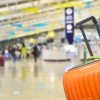
Tips for Staying Healthy While Taking a Vacation on a Cruise Ship
Contagious illnesses often spread among passengers on cruise ships. These tips will help you to stay healthy so that you can enjoy your vacation to the fullest extent possible.
Three Tips for Staying Healthy While Taking a Cruise
Many people enjoy the convenience, comfort and ambiance that a cruise ship vacation entails. From the on-site entertainment and activities to the spectacular views and endless dining options, you may be naturally drawn to taking a cruise for your next vacation. Before setting off on your trip, you’ll want to arrange for US citizen travel insurance and take a few other precautions to reduce your chances of getting sick while away from home.
Get Vaccinated
Many contagious illnesses that spread through cruise ships can be avoided by getting vaccinated before you leave home. Your physician, health department or a travel health clinic can determine which shots you need based upon your health history and the risk factors associated with your destination. Some common travel vaccinations include hepatitis A and yellow fever.
Taking Preventive Medications
If your cruise includes stops at certain destinations, you may want to get a prescription for preventive medications. Many of these medications need to be started in advance of your travels. Anti-malarial drugs may be needed if you’re visiting destinations in South America or Africa, while anti-parasitic medications may be needed for tropical ports of call. Your doctor can help you make an informed decision about whether or not you need these medications.
Hand Washing
Careful hand washing is the single most important action for you to take while aboard the ship. Wash your hands for 30 seconds in warm water with soap before and after eating, after using the bathroom and after returning to your state room when you have visited a public area of the ship, such as a game room or a lounge chair on the decks. In places such as the ship’s casinos or theaters, you may want to bring along a travel sized bottle of hand sanitizer, which can be used to kill germs on your skin when it isn’t convenient to go to the restroom to wash.



